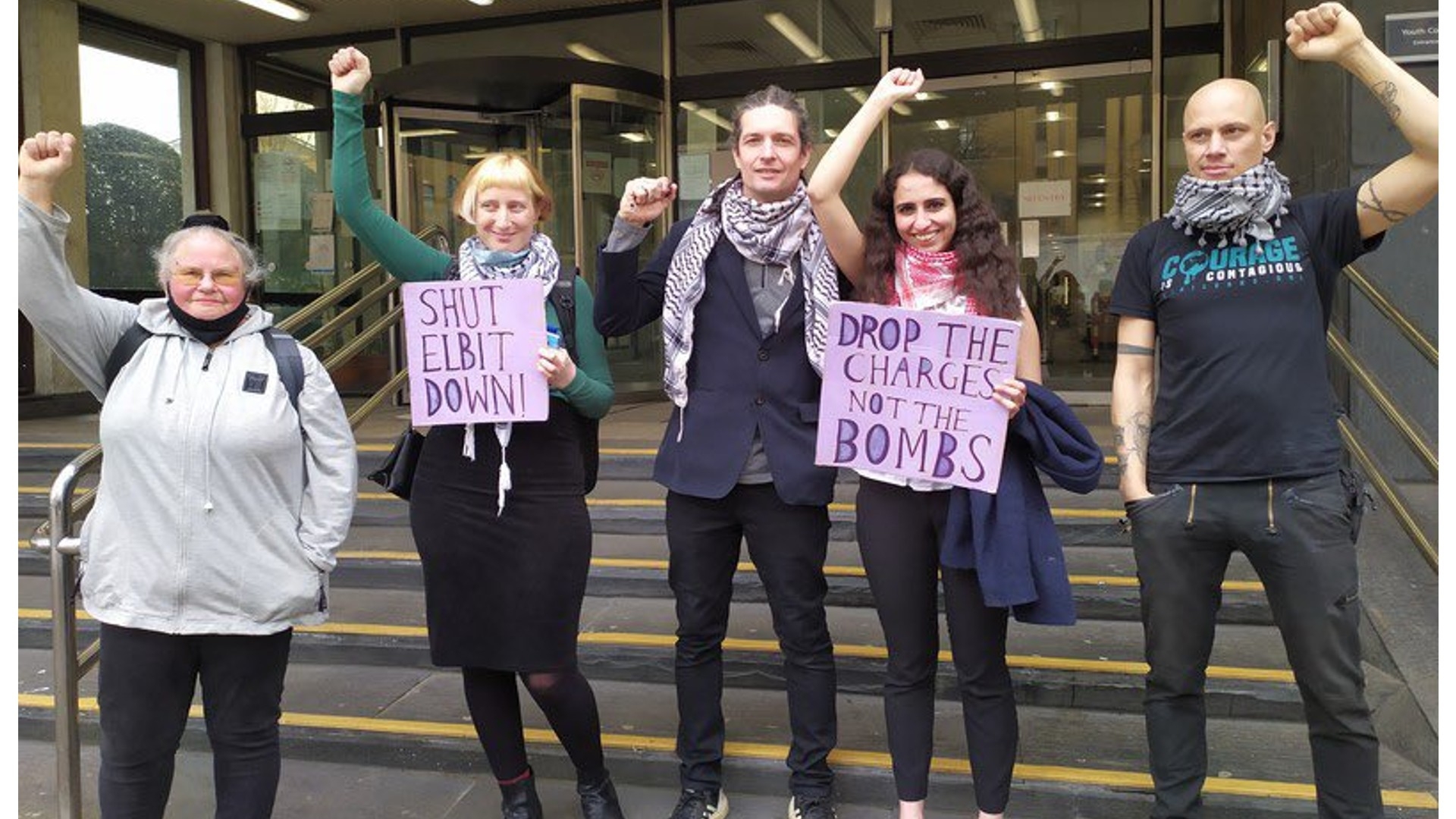UK: Documents suggest Israel tried to influence courts against pro-Palestine activists

Israeli embassy officials in London could have attempted to exert influence on the prosecution of pro-Palestine protesters, according to documents seen by The Guardian.
The documents, disclosed by the attorney general's office (AGO) via a Freedom of Information (FOI) request, reveal multiple attempts by embassy officials to pressure the director general of the AGO, Douglas Wilson, to interfere with court cases relating to protesters.
While the disclosed emails and meeting minutes are heavily redacted and specifics of the officials' demands are unclear, in an email dated 9 May Wilson refers to the "operational independence of the CPS [Crown Prosecution Service], and the AGO's ability to bring about prosecutions".
The email, which came after months of direct action targeting the sites and offices of Israeli weapons manufacturer Elbit Systems by the non-violent direct-action group Palestine Action, also outlines restrictions imposed by the Police, Crime, Courts and Sentencing Act, controversial legislation that has drawn fire from campaign groups for severely restricting the right to protest.
In the same email, Wilson mentions the Colston statue case, where anti-racism protesters in Bristol toppled the statue of a local figure that grew his wealth through slavery. In the case, a referral by the attorney general triggered a decision by the court of referral that protesters accused of "significant criminal" damage could not be acquitted using human rights defences, a ruling that further curtailed the right to protest.
New MEE newsletter: Jerusalem Dispatch
Sign up to get the latest insights and analysis on Israel-Palestine, alongside Turkey Unpacked and other MEE newsletters
Since the Colston ruling, Palestine solidarity activists, as well as environmental campaigners, have been convicted for targeting private property, a crime that previously they could have been acquitted for using human rights defences.
A section of the disclosed correspondence, dating from February, discussed the possibility of a joint declaration to seek "closer bilateral cooperation" over "legislation and legal reform, civil and criminal law and legal education" between the respective countries' justice ministries.
The same email also discusses private (citizen's) arrests in the UK for alleged war crimes. Wilson mentions the tightening of procedures for these cases and advises about "special mission immunity", a status that was previously used to grant immunity to former Israeli foreign minister Tzipi Livni.
According to Palestine Action, the revelations are the latest evidence of collusion between the UK government and Israel to crack down on pro-Palestine activism in UK.
In 2021, then-foreign minister Dominic Raab reportedly met with Israeli ministers in Jerusalem to discuss a crackdown on Palestine Action's campaigning.
"This is confirmation of what has been suspected for a long time, that the Israeli state is attempting to exert top-level diplomatic influence to lock up those who stand against its war machine," Palestine Action said in a statement.
According to the group, the correspondence sheds light on the plethora of charges levelled at "hundreds" of campaigners, including conspiracy to blackmail and criminal damage.
Following the revelations, the London-based International Centre of Justice for Palestinians (ICJP) called on the UK to "strongly condemn foreign interference in internal affairs" and not prioritise diplomatic relations over the country's sovereignty from Israeli foreign influence.
"The Israeli embassy has a historic pattern of attempting to undermine British democracy," the ICJP said in a statement.
"This tactic forms part of a larger strategy to intimidate and silence critics of Israel in the United Kingdom."
In 2021, co-founders of the group Huda Ammori and Richard Barnard were arrested under the Terrorism Act.
An Israeli embassy spokesperson told The Guardian that it "under no circumstances would interfere in UK legal proceedings", adding that "as part of its ongoing work, the embassy of Israel raises awareness on severe attacks against entities related to Israel".
The UK operations of Elbit, founded in 1966, has been repeatedly targeted by Palestine Action. The arms company, which manufactures drones that the group has said were "battle-tested" on the Gaza Strip, has been expanding its operations internationally.
In December 2021, three activists in the UK were acquitted of criminal damage over daubing the walls of the Israeli arms company with red paint in what was hailed as a "landmark decision" by Palestine Action.
Middle East Eye delivers independent and unrivalled coverage and analysis of the Middle East, North Africa and beyond. To learn more about republishing this content and the associated fees, please fill out this form. More about MEE can be found here.





